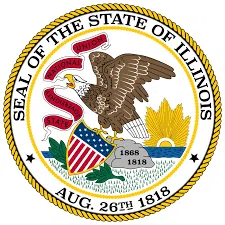The Illinois Department of Financial and Professional Regulation is expanding the new online licensing system. Four additional professions are now available for licensure on the Department’s new online licensing system, CORE. They include Licensed Behavior Analyst, Licensed Assistant Behavior Analyst, Behavior Analyst Continuing Education Sponsor, and Licensed Certified Professional Midwife. The department will transition all licensing procedures to CORE in a phased implementation process over the next two years.
With the U.S. Government now under a new administration, the possibility of a national concealed carry law is increasing and some are speculating how that will impact the Land of Lincoln. While every state in the nation has some kind of concealed carry law as the requirements vary state by state, some allow concealed carry without a permit, although other states, like Illinois, require an individual permit. Some say a national concealed carry exchange law would be similar to how states recognize driver’s licenses from other states. Illinois, by the way, was the last state in the nation to implement a law allowing carrying concealed firearms outside the home, approved 12 years ago in 2013.
Chicago is expected to be ground zero for the President Trump’s deportation strategy as he noted Monday that securing the country’s southern border is paramount. However, Illinois democrats, like Governor J.B. Pritzker and U.S. Senator Tammy Duckworth, released statements with tips for non-citizen migrants, that is illegal immigrants in the state, on how to handle immigration officials, plus phone numbers on how to get legal assistance. While illegal immigrants are encouraged to “know their rights” many are asking what rights do people have when they are in Illinois and America illegally.
The national grassroots organization, Parents Defending Education, has filed a federal civil rights complaint with the U.S. Department of Education, accusing School District #308 in Oswego, Illinois, of race-based discrimination. The group claims the district allows only some students to participate in an affinity group, called Black Student Alliance Buddies, which sponsors a school program for only 4th and 5th grade students who identify as Black, Biracial, or African American to attend. A hearing date in pending.
Governor JB Pritzker on Tuesday signed a long-awaited bill to stop Illinois organizations from paying less than the minimum wage to workers with disabilities. The bill applies to businesses and other facilities that hold what is known as a 14(c) certificate, named after the section of the Fair Labor Standards Act of 1938 permitting lower wages for disabled people. Organizations receiving the exemption are allowed to pay a “commensurate wage” based on the worker’s individual productivity in proportion to the wage and productivity of workers who do not have disabilities but are performing the same or a similar task.
The governor signed House Bill 793, which, beginning in 2030, will prohibit businesses and other residential facilities in Illinois from claiming an exemption allowing them to pay workers with disabilities less than minimum wage. Illinois is the 19th state to eliminate the subminimum wage for workers with disabilities. Organizations must phase in the full minimum wage by the end of 2029.
The bill received bipartisan support in the General Assembly in 2024 following lengthy negotiations that began more than five years ago. It creates a transition grant program designed to provide financial support for organizations to continue employing people with disabilities while paying them at least the state minimum wage. It also establishes a task force to oversee the transition.
Money for the transition program would come from the Illinois Department of Human Services’ line item for transforming the state’s developmental and intellectual disability system. That line item includes $20 million for various programs for the current fiscal year, but lawmakers and advocates had previously discussed using $2 million to fund the transition grant program.
Illinois has 59 programs currently receiving a federal exemption. Those programs employ about 2,500 people, according to the U.S. Department of Labor.

Comments